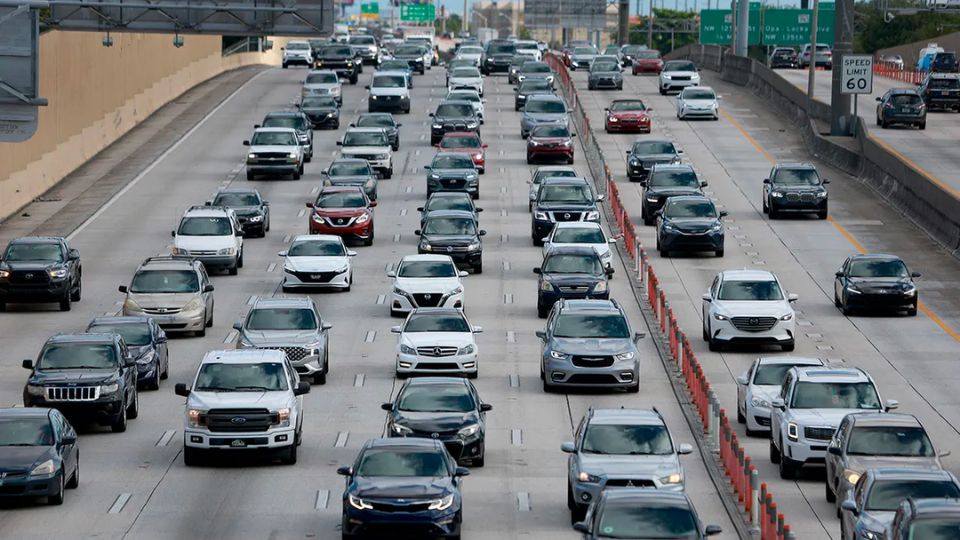Florida is preparing to enforce stricter regulations on fast-paced living. The Florida legislature approved a bill prohibiting drivers from cruising in the left lane of highways, now awaiting Gov. Ron DeSantis’ signature. The bill sailed through the state Senate with a unanimous vote of 37-0.
According to The News Service of Florida, state Sen. Keith Perry (R) stated that passing a slower vehicle on the right in the left lane can result in a ticket for an infraction.
According to HB 317, drivers are not allowed to drive in the far left lane on a road with two or more lanes and a speed limit of at least 65 miles per hour, unless passing another vehicle, getting ready to exit, or following instructions from a traffic control device.
This restriction does not affect high occupancy lanes. The legislation was introduced by Republican state Reps. Jenna Persons-Mulicka and Melony Bell in the House and Perry in the Senate. If someone breaks the law, they could be fined for a moving violation, with fines reaching up to $158, as stated in the bill. Authorized emergency vehicles and vehicles involved in highway maintenance or construction operations are exceptions to the rule.
Also Read: California City Has Already Received More Than Year’s Worth of Rain
Perry stated that the measure aims to enhance highway safety. “Last year, there were 247 cases of individuals being incapacitated or losing their lives due to improper passing on the right-hand side in someone’s blind spot,” he informed Action News Jax last week.
If DeSantis signs the bill, Florida will be added to the list of eight states where driving in the left lane is only allowed for turning left or passing, as reported by AutoInsurance.org. States that have implemented these restrictions are Illinois, Kansas, Kentucky, Louisiana, Maine, Massachusetts, New Jersey, and West Virginia.
Driving is a common practice in the United States, so many people cross state lines without much thought. According to Jeffrey Johnson, an insurance lawyer, each state has its own set of traffic laws with potential legal and physical consequences for violations. That’s why 27 states mandate that drivers keep to the right if they are going slower than the vehicles around them.



Leave a Reply